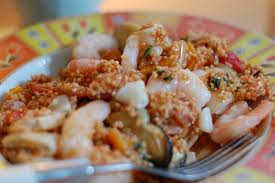Eggs
Egg is one of the fat burning and breakfast food for the daily life of working people, because they don’t have time to eat a healthy food. Even for taking some food also, they will watch the time and eat. The people who are worrying for their fat can eat eggs over their daily life, because it contains the capability to emulsify fat and provide energy to your body.
Seafood
Some may ask a question like “How seafood will burn fat! Is this possible… “Yes, seafood is helpful for weight loss, because it reduce the level of a hormone is called Leptin, it works as a very slow metabolism rate in the body.
Ginger
Ginger is one of the best medicines for all disease; generally people may take ginger in your food for your daily life. Medically it has been proved that the ginger is a fat burning food, because it widens the blood vessels in the body and also increase metabolism.
Soybean
Soybean is one of best solution for fat loss, because it contains a chemical called lecithin which will helps for fat loss in your body, and break down the existing fats.
Onion
Onion plays an important role for fat loss and deserves a regular place in your diet. Onion controls cholesterol, purify the blood, and best for counteracting allergic reactions, because one chopped raw onion contains only 62 calories, and one raw medium onion contains just 42 calories.

















































